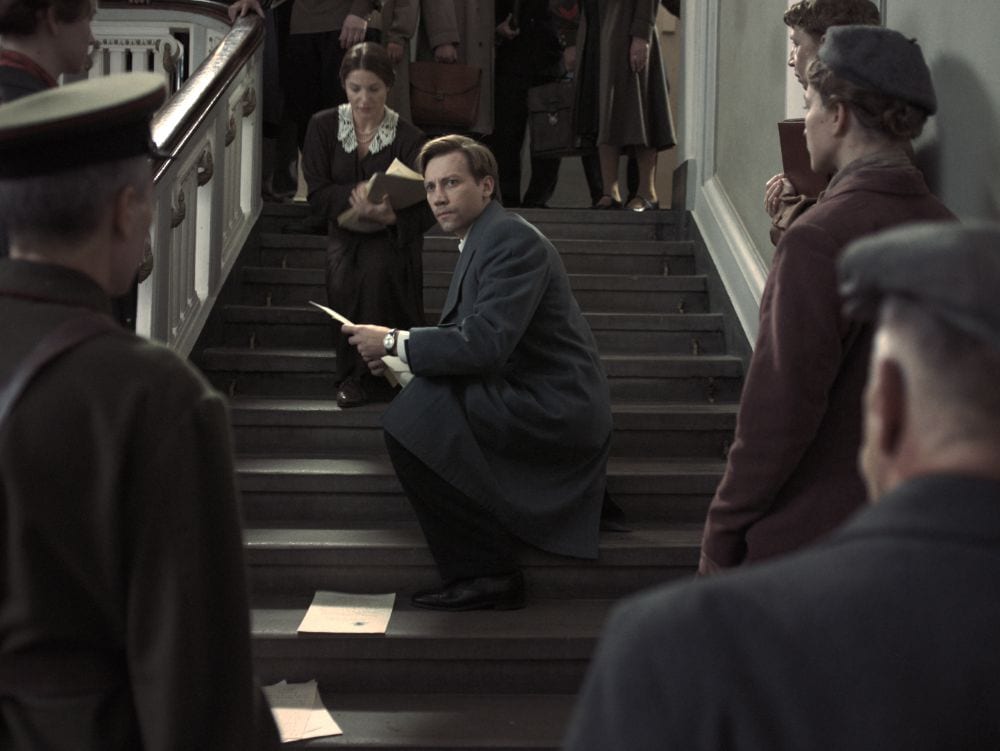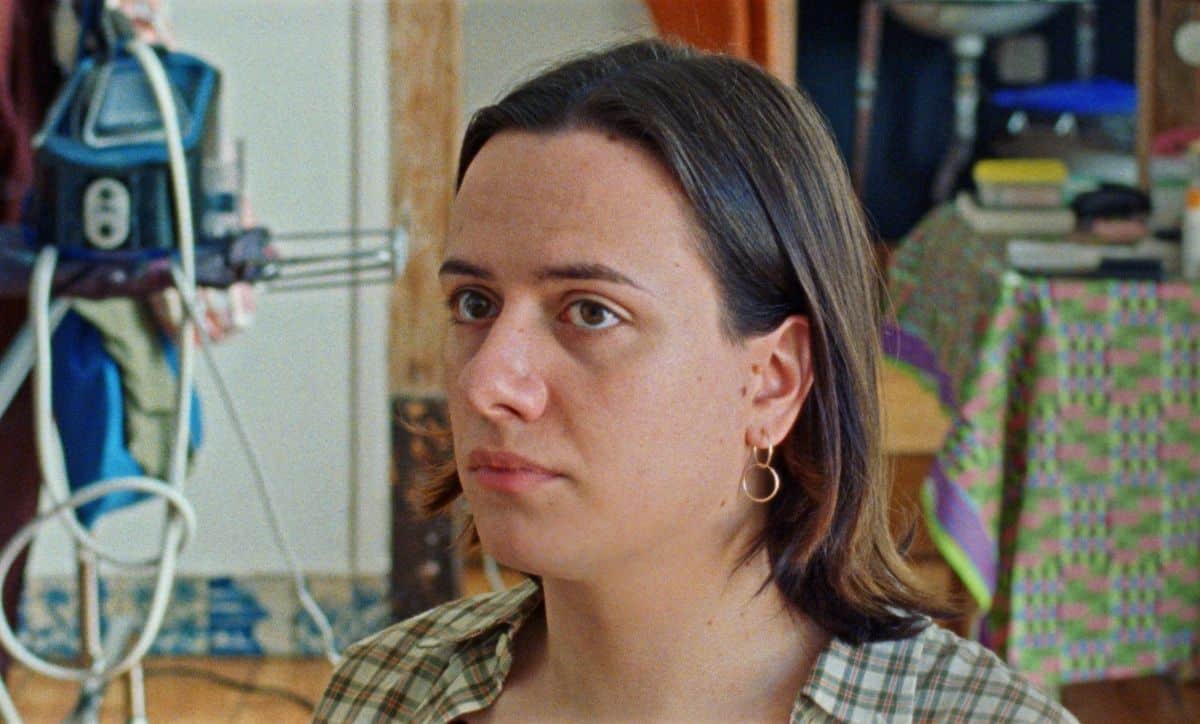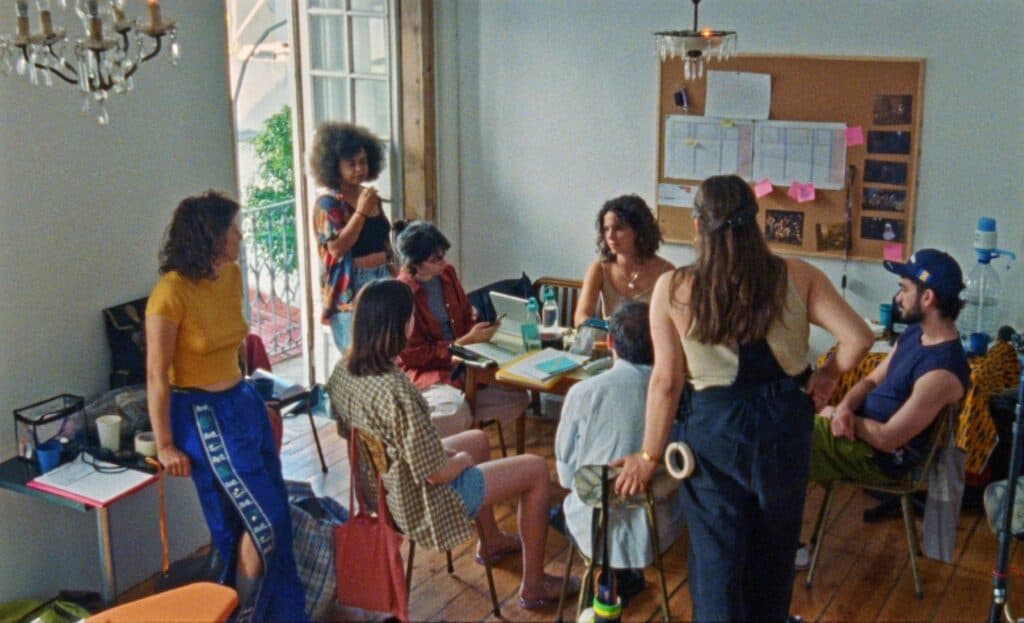Two Prosecutors (Dva prokurora), directed by Sergei Loznitsa, is a historical drama set in the Soviet Union during Stalin’s Great Terror of 1937. Adapted from a novella by gulag survivor Georgy Demidov, the film centers on Kornyev (Aleksandr Kuznetsov), a young, idealistic prosecutor who uncovers a blood-written letter from Stepniak (Aleksandr Filippenko), a jailed former prosecutor. The letter, smuggled from a Bryansk prison, exposes the NKVD’s brutal tactics, including torture and coerced confessions, to eliminate supposed state enemies. We will basically follow Kornyev on his way to dig up the truth of what is going on. He visits Stepniak, who gives him more details about the systemic Soviet corruption. We will see him travel to Moscow later as well.
The latter is to alert the higher authorities to what is going on. Wherever Kornyev goes, he is met with delays, purported misunderstandings, and vague resistance. At an early stage, things started to feel obvious, and I started wondering where the film was heading. The path that Kornyev would take seemed inevitable, and everything turned out as I expected. Even though the film abounds with accomplished compositions, courtesy of Oleg Mutu, Two Prosecutors is entirely driven by the dialogue. The topic is obviously important, but as Agnieszka Holland showed in the abysmal Mr Jones, an important subject matter can still result in a flawed film.
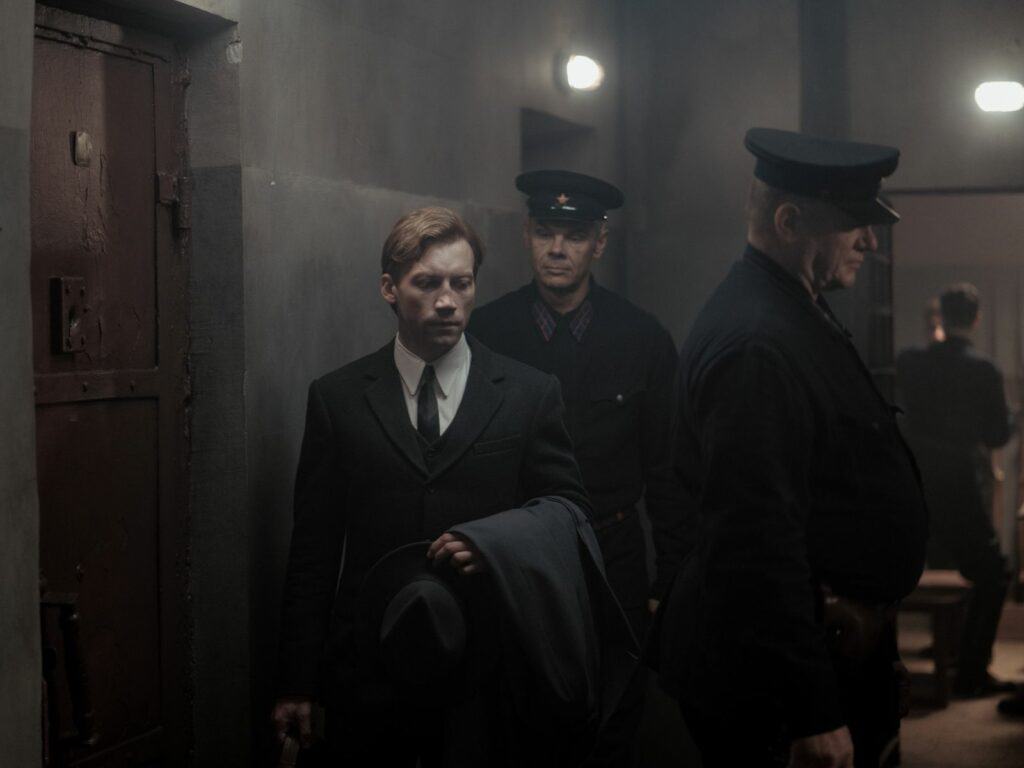
I don’t wish to stress the resemblance between the two since Loznitsa’s work lacks the jarring tastelessness that Mr Jones revelled in. It is rather a work of impeccable taste, but I can’t help thinking that it should sometimes have been more peccable (That word should clearly exist). It is an earnest and thoughtful work, but it plainly shows that fiction films are not Loznitsa’s forte. Two Prosecutors is frighteningly academic, and that impression was enhanced by having seen Masha Schilinski’s The Sound of Falling a few hours before on the same day. Several aspects of the story made me think of Péter Gothár’s The Section (A Részleg 1995). The storylines have similarities, but Gothár’s film is more visually compelling.
Two Prosecutors Talking and talking
Loznitsa’s formula for this film seems to be “Tell, don’t show”. Another difference between the films is that The Section is 82 minutes long. This film could handily have been trimmed to a similar length without using anything essential. The film is shot in the Academy Ratio. For some reason, there were plenty of such films at Cannes this year, including the aforementioned Schilinski film. That being said, the two films couldn’t be more different. Two Prosecutors could be called a flawless film since all the tech specs are on a high level, but it might be the most academic film I’ve seen all year, and it outstays its welcome quickly.
Seen in the competition of the 2025 Cannes Film Festival.
Two Prosecutors by Sergei Loznitsa – The Disapproving Swede
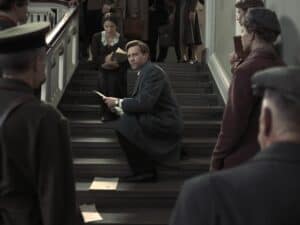
Director:
Sergei Loznitsa
Date Created:
2025-05-22 15:39
